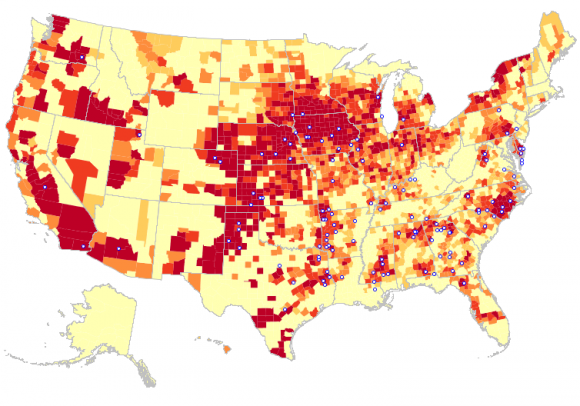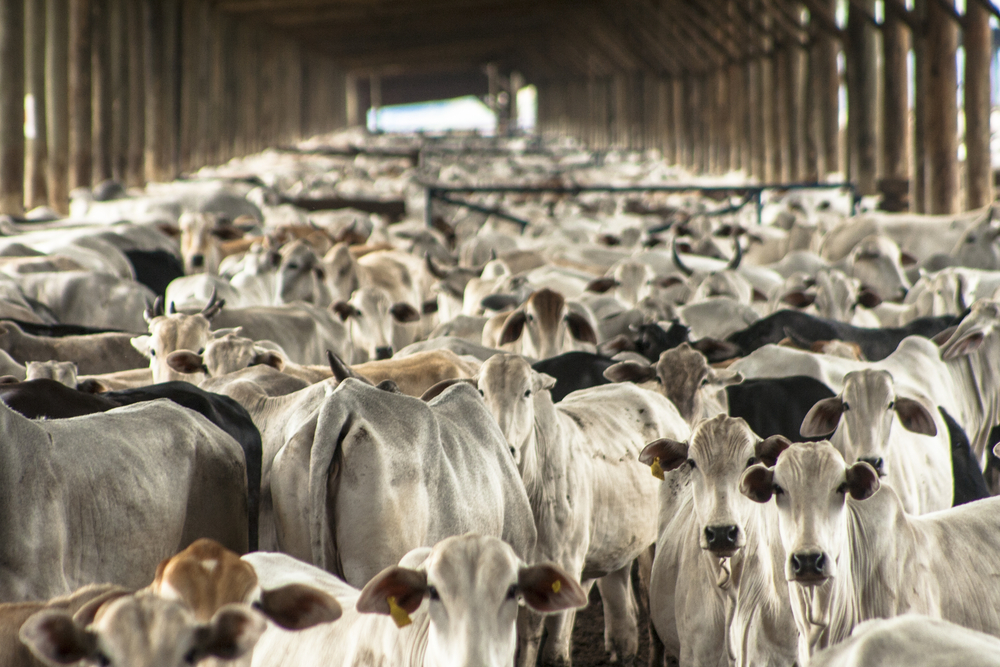Americans are beginning to wake up to the reality of where their food comes from, but the meat industry is caught up in the same old shit (literally — read on).
What’s more, it’s growing: a new report from Food & Water Watch reveals that size and number of factory farms in the U.S. has soared over the past decade and a half. They’re processing a lot more animals than ever, and those animals are creating enormous amounts of waste.

Factory farm density in 2012 (Food & Water Watch analysis of U.S. Department of Agriculture Census of Agriculture data)
The report uses USDA data from 1997, 2002, 2007 and 2012 to chart the rise of oversized livestock operations. The trend is striking, as these highlights from the report show:
- The number of dairy cows on factory farms doubled, and the average-sized dairy factory farm increased by half, between 1997 and 2012.
- The number of hogs on factory farms increased by more than one-third, and the average farm size swelled nearly 70 percent from 1997 to 2012.
- The number of broiler chickens on factory farms rose nearly 80 percent from 1997 to 2012, to more than 1 billion.
- The number of egg-laying hens on factory farms increased by nearly one quarter from 1997 to 2012, to 269 million.
And in 2012, factory farmed livestock produced an astounding 369 million tons of manure — 13 times the sewage produced by humans in the U.S. For real, it’s a shitshow, a fact Food & Water Watch is highlighting in a new advocacy campaign:
“As factory farms grow in size and number, so too do the problems they create,” said Wenonah Hauter, the group’s executive director, in a statement. Among them, she lists: “increased water and air pollution; fewer markets for independent, pasture-based farmers; public health burdens like antibiotic-resistant bacteria; and large scale food safety risks for consumers.”

